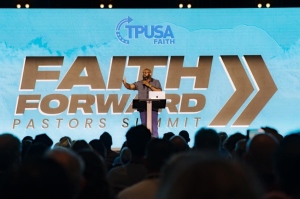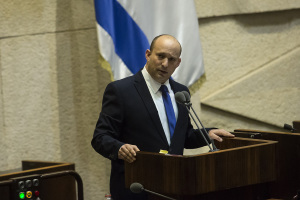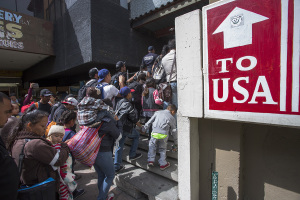Persecution and the Pope
Pope Francis I should be a strong defender of persecuted religious believers of all faiths. The world is in dire need of such leadership.
Religious persecution is the gravest human-rights abuse of our day, both in its global reach and the numbers affected and in its implications for regional stability and world peace. When Congress enacted and President Clinton signed into law the International Religious Freedom Act in 1998, the United States became a world leader in the defense of religious freedom, with the high point of American leadership being a negotiated end to a religious conflict in South Sudan that had taken some 2 million lives. But it is a world leader no more. Washington has abdicated that role even as religious repression is intensifying internationally.
Ongoing religious persecution should be a major concern of the Catholic Church. In sheer numbers, Christians are the most persecuted religious group, suffering under the remaining militantly secular Communist regimes, under Islamist regimes, and under some nationalist regimes. And these persecutors of Christians typically persecute other religious minorities as well.
Over just the last few days, an Egyptian Copt was arrested for evangelizing and was tortured to death in police custody in Libya; a Christian village in Pakistan was stormed and set ablaze by a mob incensed by rumors of blasphemy against Islam; five Christians were put on trial in Iran; and Christians and their churches in Sudan were under siege by the Khartoum regime. Over the past decade, some two-thirds of the Christian population of Iraq has been killed or driven out of the country by targeted extremist violence against 70 of their churches and many other atrocities. The fate of Syria's defenseless Christian community now seems grim. It is likely that, before long, Egypt and Lebanon will be the only countries in the Arab Middle East with significant Christian populations.
Pope John Paul II, as a young bishop, helped draft Vatican II's historic declaration Dignitatis Humanae, and he later made its seminal principle of religious freedom - for Catholics and non-Catholics alike - a central theme of his papacy. There has been no turning back: Catholicism now embraces religious freedom and pluralism, and ecumenical and interfaith undertakings, formerly anathema to it, are now commonplace.
Both John Paul II and Benedict XVI also defended those threatened by severe religious persecution. They prayed and stood up for the rights of persecuted Christians of all traditions, calling their heroic witness the "ecumenism of the martyrs." They apologized for historical Christian persecution of the Jews and for insufficient Church action to stop the Holocaust. John Paul intervened with Roman authorities to secure approval for the building by Saudi Arabia of what is now among Europe's largest mosques. Benedict correctly observed that at present "Christians are the religious group which suffers most from persecution on account of its faith," and he compellingly argued that this situation was a "threat to security and peace, and an obstacle to the achievement of authentic and integral human development."
However, this papal commitment to defending the persecuted has yet to infuse the whole Church, much less influence the larger world. The international community is doing far too little to shield from execution, imprisonment, and other severe treatment religious minorities who cannot speak up for themselves.
Pope Francis I should build on his two predecessors' endeavors to bring aid and comfort to those who suffer for their religious beliefs.
* He should encourage the bishops to educate the faithful about the ongoing persecution of Christians and other religious minorities. Sunday prayers could make specific references to the Catholic bishops and evangelical leaders in indefinite detention in China; to the Christians languishing in North Korean detention camps merely for possessing a Bible; and to the Nigerians, Iraqis, and Egyptians whose churches have been repeatedly targeted in jihad attacks and even blown up during worship services. At Mass, we prayed for earthquake victims in Pakistan, so why aren't we praying for Asia Bibi, the mother of five who is on death row for violating Pakistan's draconian blasphemy laws?
* In his tireless advocacy for the oppressed Eastern European churches, John Paul showed that action is also required. In the Middle East, the cradle of Christianity, the persecution of Christians and other minorities has been exacerbated by the Arab Spring. Americans should appeal to their elected officials to apply the United States' considerable influence to protect the rights of Christians in this region, as well as of similarly afflicted Mandeans, Yizidis, and Baha'is. A decade ago in South Sudan, a genocidal assault against Christians and traditional African believers was halted with the help of the U.S. government after just such an American faith-based campaign.
* Church-organized human-rights groups and justice-and-peace commissions became common features in Central America, Chile, and elsewhere in Latin America during the military dictatorships of the 1980s, and they were indispensable to advancing rights and freedoms. We need similar groups in many Middle Eastern, Asian, and African countries today. If the promise of Dignitatis Humanae is to be fulfilled, it is crucial that the laity be trained to document religious persecution and other human-rights abuses.




























